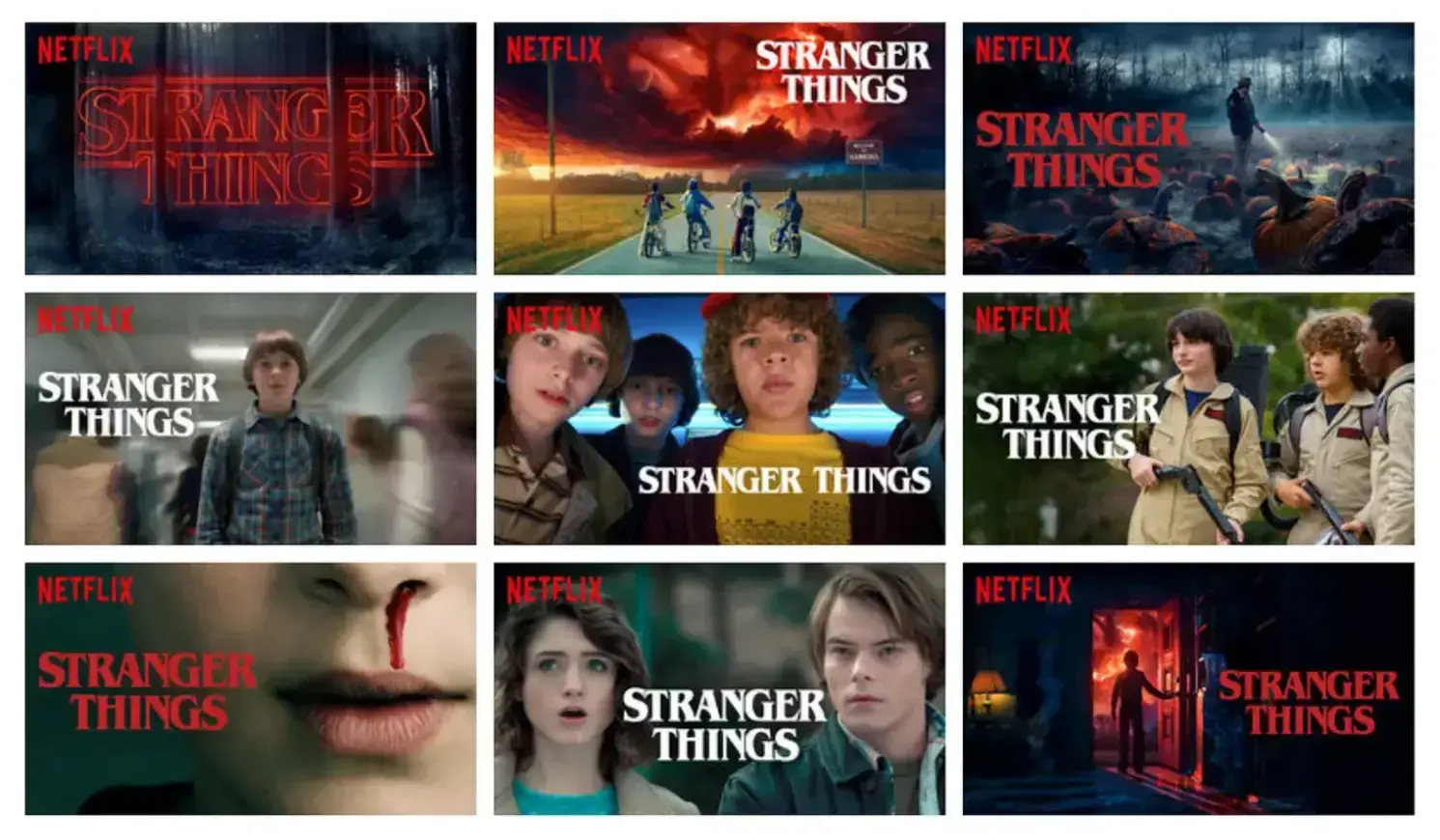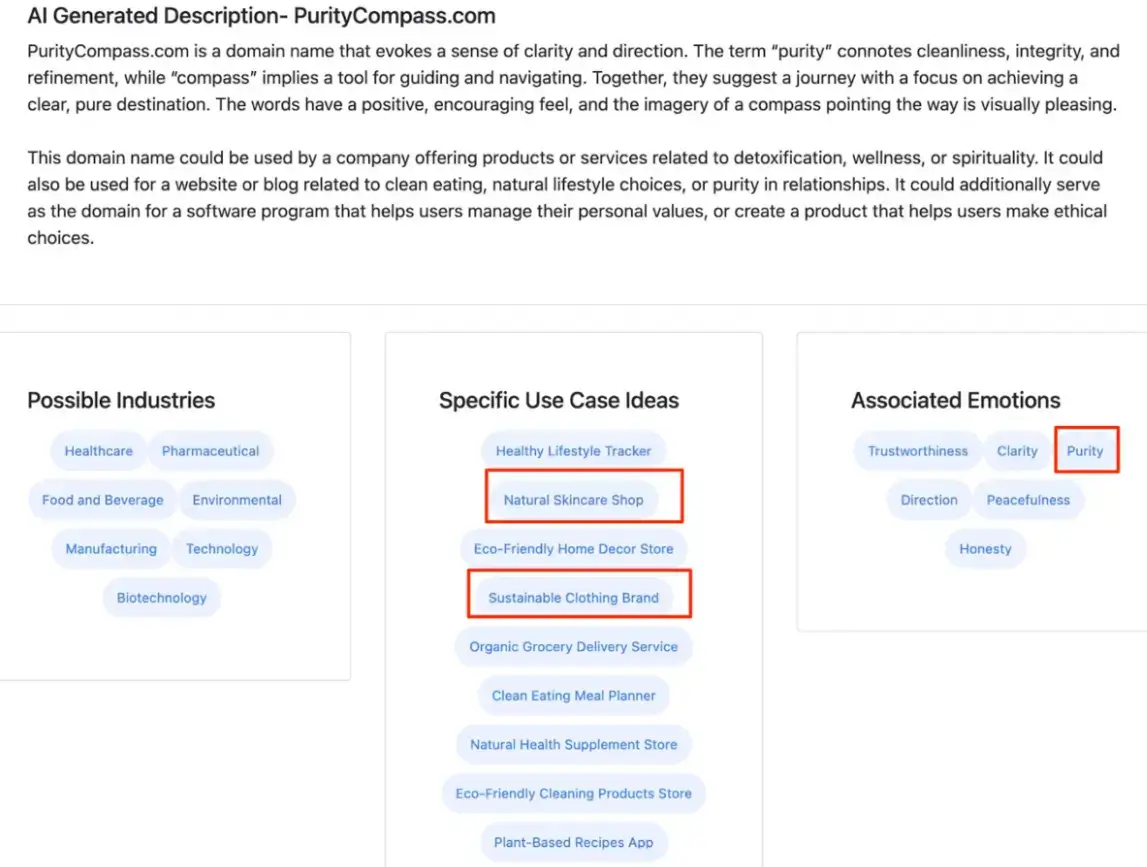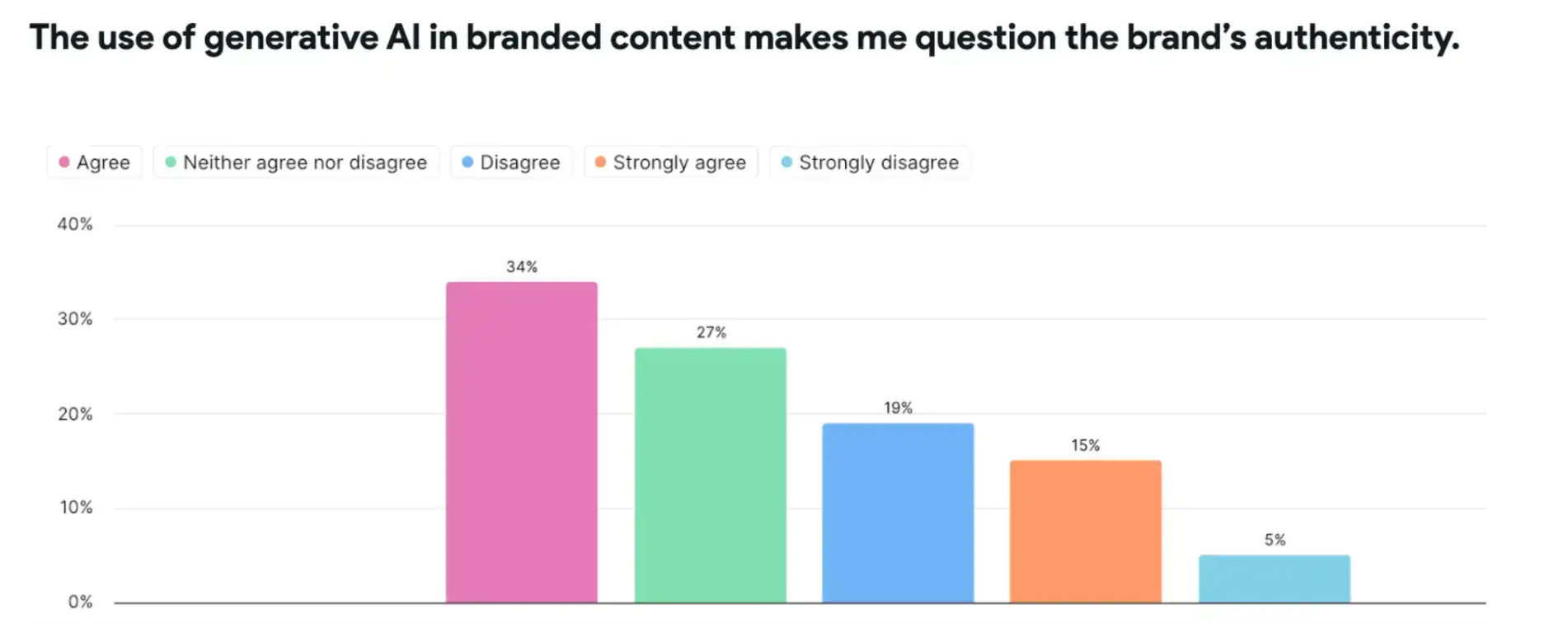AI has made it easier than ever to launch a business, but in doing so, it’s made modern markets more competitive than ever before.
In this landscape, marketers and small businesses need to leverage every technological trick in the book to reach and entice customers, and artificial intelligence is now an important tool for optimization throughout the marketing funnel.
Yet, while there are significant advantages of AI for marketing, it also poses risks, and it has the potential to alienate customers and impact perceptions of authenticity. AI integration must be transparent, tested, and on-brand to retain customer trust and positively impact your customer journey.
Article Shortcuts:

Source: Created with GenAI tool Microsoft Designer
The Power of AI Personalization
As relationships with users and customers are increasingly digitized, taking place across email campaigns and dynamic web 2.0 sites, customers have come to anticipate tailored experiences.
71% of consumers now expect personalization, and 76% are frustrated when they don’t receive it.
AI makes personalization possible at scale. Algorithms now recommend the movies we watch and the music we listen to, and in ecommerce, AI is being used to create highly relevant product recommendations for customers.
AI enables you to take user data, from customer segments down to the single customer, and create custom experiences in everything from email marketing campaigns to web page displays.
Of course, personalization is only one piece of the puzzle, and AI can be integrated at every stage of the marketing funnel to create engaging content that builds trust, credibility, and connection with your audience.
The endpoint isn’t even the sale — it’s long-term loyalty that results in a high customer lifetime value.
Optimizing the Marketing Funnel
From discovery to conversion, AI can be integrated across the marketing funnel. By predicting customer behavior and automating routine tasks, AI frees up time for marketers to focus on strategy and creativity.
-
Discovery
If targeting potential customers through advertising, AI’s most powerful application in the discovery stage is the creation of accurate audience personas that define customer groups and predict their behavior.
Additionally, tools like advanced SEO tracking software provide powerful insights.
These tools enable businesses to monitor keyword rankings, analyze backlinks, and track site changes across different regions and devices. This comprehensive data aids in refining marketing strategies to effectively reach and engage target audiences.
For example, are some more likely to click through an ad in the morning and others in the evening? Others may discover a mobile product but are more likely to buy it on a desktop.
Through these personas, you can create highly targeted marketing campaigns that bring in more and more engaged customers. At Atom, we achieved a 57% more efficient cost per acquisition through Demand Gen, Google’s AI-powered ad solution that targets high-intent customers.
Where lead generation is important, AI can be used for automated and enhanced lead scoring, prioritizing prospects most likely to convert based on customer segments and past conversion data.
Given that research has found up to 50% of prospects will be a bad fit, this analysis allows your sales team to focus their efforts where they'll have the most impact.
-
Interest and consideration
At Atom, we offer several free tools built on AI to generate interest. These tools solve problems for our customers and demonstrate our credibility in the naming and branding space.
Integrating AI at this stage allows you to offer potential customers genuine value, such as our business name generator and recently released domain appraisal tool.
Plus, AI allows you to personalize the earliest interactions customers have with your brand. Dynamic content on your website can be adjusted in real-time based on user interactions.
Netflix, for example, customizes thumbnails to display a frame from a movie or TV show based on the user’s past interactions with the app.

Source: Medium
Content is also an essential part of the consideration stage, as many customers will be drawn from keyword searches (if your SEO strategy is on point).
However, be careful when using AI in content creation; as for now, GenAI generally struggles to create the tight, credible copy you need without human oversight.
-
Confirmation
At the confirmation stage, customers need to see and understand the benefits of your product over competitors. AI can generate compelling product descriptions that confirm your value.
At Atom, we use AI to build product descriptions and accurate categories for our domains.
Our brandable descriptions and deep product categorization emphasize use cases for our domains, and we continue to work on both as we learn more about what works.

Source: Atom.com
-
Conversion
By tracking customer engagement — such as unique website visits — and retargeting them when analytics suggests they’re close to a sale, AI can assist in the conversion stage.
At Atom.com, we use AI to enhance user experience by tailoring our marketplace search technology to predict buyer’s intent.
We trained AI models to provide better insights on domains likely to be purchased, which resulted in a better customer journey. This approach not only boosts customer satisfaction but also drives engagement and conversions.
This helps customers discover the most relevant domains. Next, we use insights from predictive analytics to retarget relevant customers.
For example, we discovered that a customer is substantially more likely to purchase a domain name if they visit a landing page three times, so our AI models track visits and ensure that retargeting is triggered whenever this occurs.
Conversion rates can also be improved through AI’s analytic power. GoPuff has achieved a 24% increase in conversion for its ads to returning customers with a machine learning model that includes over 1000 variables to match the right ads to the right customers at the right time.
-
Loyalty
The marketing funnel focuses on customer acquisition, but building customer lifetime value guarantees your success. AI offers several ways to strengthen your customers’ connection with your brand going forward.
AI can provide personalized rewards and experiences that make customers feel valued. For example, the Starbucks Rewards app offers incentives based on customer data, so a frequent purchaser of a caramel latte would be more likely to get a discount for that particular product.
AI can also complement customer service in the form of chatbots. This should never replace human interaction completely, but chatbots can effectively deal with the majority of simple customer inquiries.
This reduces waiting times when your customers need to speak to a real person and has a net positive effect on customer experience.
Managing the Risks When Using AI in Marketing
Despite its many benefits, AI presents some potential pitfalls that can harm your brand. The main concern is the damage to your authenticity that occurs if customers feel like they’re always talking to a machine.
Research at Atom found that almost half of consumers agree that generative AI can harm authenticity, so be careful what you share on social media, for example. With care, however, AI can be effectively integrated across your marketing funnel without damaging your reputation.

Image: Atom.com
-
Be on-brand
Maintaining authenticity while leveraging AI is a delicate balance but an achievable one. Ensure that your AI solutions are an extension of your brand values.
By using the right AI tools, you can build brand consistency effortlessly and eliminate concerns about content sounding like it was AI-generated, keeping your messaging aligned and authentic.
For example, as a B2B brand, we pride ourselves on innovation and efficiency.
AI integration across our platform and marketing is on-brand and improves customer experience. Determine where and how AI integration is appropriate for your own brand based on your customers’ expectations.
-
Balance automation with human touch
You may be tempted to go all-in on AI, but everywhere you integrate AI, ensure that it complements human interactions rather than replaces them.
If you’re using generative AI to build awareness in ads or social media, balance this by making your employees visible or highlighting customer testimonials.
As Maria Harutyunyan, CEO of Loopex Digital, points out: ''Sharing behind-the-scenes content or showcasing real stories can create a more authentic connection with your audience. Additionally, focus on incorporating diverse perspectives to ensure your messaging resonates with a wider range of people."
Customer support is another aspect to invest in, ensuring that even when AI is used for the initial touchpoint, your customers can reach a human if needed.
Lastly, be sure to seek feedback from your audience on their experience with your AI solutions and make adjustments as needed.
Tracking metrics and a periodic brand audit are essential for every business, but they are all the more important when integrating cutting-edge technology.
FAQ
1. How is AI used in marketing?
AI is used in marketing in many ways. AI’s analytic power can build targeted customer segments, personalize content, and analyze past campaigns.
This data can then be used to generate or tweak campaigns and optimize future performance.
2. What is the best example of AI in marketing?
Atom.com used Google’s AI-powered ad solution Demand Gen to identify and target high-intent customers with visually rich ads across relevant platforms such as YouTube and Google Search.
Through this, Atom achieved a 57% more efficient cost per acquisition.
3. How to use ChatGPT for marketing?
ChatGPT can write copy based on input prompts. Include your goals, target audience, intended platform, and brand tone of voice in your prompt.
ChatGPT can generate everything from social media posts to email marketing. While ChatGPT’s marketing writing isn’t always perfect, it’s particularly useful for generating multiple versions of copy for A/B testing in campaigns.
Looking Forward: Balancing AI with Brand-Building
AI is a powerful tool that can greatly enhance your marketing process when used strategically.
By optimizing lead scoring and customer segmentation, you can improve conversion rates while personalization builds trust, enhances loyalty, and creates a deeper connection with your customers.
Moreover, using AI to analyze your data across the whole funnel can provide insights into which stages are practical and where prospects are dropping off.
Meanwhile, keep an eye on your overall brand and understand how AI usage affects customer perception. Balance how you use AI for marketing with coherent brand building while knowing when to add a human touch ensures you’ll stay authentic in the eyes of your customers.
Author Bio
Grant Polachek is Chief Growth Officer at atom.com, a naming platform and startup ecosystem with 50,000+ customers globally, from small startups to large corporations, such as Nestle, Philips, Hilton, and Pepsi.


